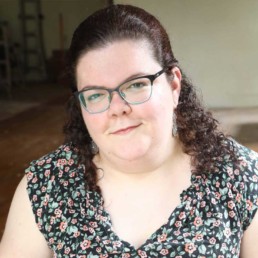Oscar nominee Andra Day on protest, power, and Billie Holiday
It’s been over 80 years since Billie Holiday first recorded “Strange Fruit,” about a lynching in the South, and yet in a week that saw multiple Black and brown people killed by police, the song—and the activism that Holiday brought to it—remains painfully relevant today.
Holiday’s legacy was top of mind on UNDISTRACTED, as Brittany Packnett Cunningham sat down with singer, songwriter, and actress Andra Day to talk about her Best Actress Oscar nomination for her role as the jazz icon in “The United States vs. Billie Holiday.”
The Grammy-nominated singer’s stage name is inspired by Holiday—and the film represents her acting debut. Day took home a Golden Globe for her performance, and if she wins the Oscar Sunday night, she’ll be only the second Black woman after Halle Berry to do so.
Packnett Cunningham and Day dug into the role, the history behind “Strange Fruit,” and the need for more stories about “complex” Black women. Just a few highlights:
Day on Billie Holiday’s legacy: “She truly was the great godmother of the reinvigorated civil rights movement…We know about the death of Emmett Till—how it sparked things, but we don’t know that her singing ‘Strange Fruit’ in defiance of the government emboldened a lot of the civil rights leaders that we’re familiar with today. She represents truth to me. She represents freedom fights. She represents conquering your fears. She knew that she would probably be killed every time she got up on stage and sang that song, and she did it anyway.”
Day on Billie Holiday being “complicated”: “I don’t know that she was complicated. I think that the circumstances were complicated. She was complex, the circumstances were complicated. Because the reality is, she was just a Black queer woman trying to live freely in the thirties, forties, and fifties—trying to do what was right.”
Day on what was so threatening about “Strange Fruit”: “We live in a system, a system of oppression—and a system of racial inequality is one that is built on controlling the narrative. So that means deception, lies, misleading, suppressing certain narratives…Truth threatens. The only thing that can dismantle a system built on lies is probably truth. So when you think about it like that, it depends on your agenda. If your agenda is to continue white supremacy, to continue racial inequality; if you’re threatened by the presence of other people living fully and in totality, then yeah, that’s a scary song.”
Packnett Cunningham on the guilty verdict of Derek Chauvin: “Folks will say, you know, ‘Justice was served. The system works.’ But one guilty verdict does not justice make—not when an entire institution is still hunting us. Listen, ‘guilty’ was the only correct call to make, but we can’t be satiated by a single conviction. The point, the entire point, is that the whole system is guilty as hell and it needs to be dismantled in its entirety. If you don’t believe that, look no further than the fact that as the verdict was called out and we were all processing it, Columbus, Ohio police shot and killed a 15-year-old girl.”
Listen on Apple Podcasts, Spotify, Stitcher or wherever you get your podcasts.
WHAT OUR COLLECTIVE IS INTO RIGHT NOW
The Meteor is guided by our collective; here’s what founding member and disability-rights activist Emily Ladau is up to this week.
I’M WATCHING Movies and television shows that make me feel seen. I just watched the documentary Crip Camp for what must be the fifth time, because it’s a chance to celebrate being connected to generations of disabled leaders who came before me and those who continue to fight today. And I also just watched the movie Shiva Baby, which I had a visceral reaction to as a millennial Reform Jewish woman.
I’M READING What Doesn’t Kill You: A Life with Chronic Illness – Lessons from a Body in Revolt by Tessa Miller. Part memoir and part journalism, it’s such a powerful read on navigating relationships—both with yourself and the people in your life—and the broken systems meant to provide care. As a disabled woman, the book deeply resonates, but I think it’s a worthwhile read for anyone, especially those seeking to better understand the experiences of chronically ill loved ones.
I’M FOLLOWING Blair Imani’s YouTube channel. Her “Get Smarter” and “Smarter in Seconds” series are the perfect bite-size social justice lessons.
I’M DOING MORE Journaling. I spend so much time writing for work that I sometimes lose the joy of writing for myself. Putting words on a page that’s meant only for me is a way to reconnect with my love of the writing process.
I’M GETTING MY JOY FROM Being fully vaccinated! And also reminding people that access to the COVID vaccine is a privilege and it shouldn’t have to be. Inequities in distribution continue to abound.
Emily Ladau is a disability-rights activist, writer, and speaker. Editor in Chief of Rooted in Rights and co-host of “The Accessible Stall Podcast,” her writing has appeared in The New York Times and HuffPost. Her book, Demystifying Disability, comes out in September 2021. Subscribe to her newsletter here.
